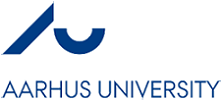Commercial and Retail Management

Introduction
The MSc in Commercial and Retail Management is based on the growing challenges faced by the consumer goods industry, and has been developed in close collaboration with prominent actors from the industry.
The degree programme prepares the student for a career in HQ functions of the consumer goods industry. It provides the student with an understanding of the industry’s specific challenges, which paves the way for a faster climb up the career ladder.
The students will acquire qualifications in areas such as retail strategy and innovation, consumer behaviour, supplier-relations and business negotiations, pricing, performance management as well as category, stock and brand management.
Deep understanding of the value chain
Today, traditional retail trade is supplemented with e-commerce and various hybrids, and more and more communication takes place on social media. Companies must therefore be able to handle an omni-channel situation where a number of different sales and communication channels must be optimised in relation to each other. In addition, the ability to handle big data is becoming increasingly important in the consumer goods industry. This has led to changes in the relationship between supplier and retailer. The supplier must increasingly consider the entire value chain right through to the consumer, while the retailer must structure its supplier relations with an eye for how to create value for the consumer.
The traditional division of the B2B and B2C markets is thus developing towards a much-needed B2B2C mindset. The degree programme reflects this B2B2C mindset since the courses Supplier- relations and business negotiations and Consumer behaviour in a retail setting cover the entire value chain from supplier to consumer. Furthermore, the students will acquire competences within areas that have a particular focus on the consumer goods industry such as retail strategy and innovation, pricing, performance and margin management as well as category, stock and brand management. Digital transformation and the use of big data will play a prominent role in the programme and will recur in many courses.
Collaboration with prominent actors in the industry
The degree programme has been developed in collaboration with prominent actors in the consumer goods industry. These are gathered in a founding partners group consisting of Salling Group, Arla, Bestseller, Danish Crown, MLDK, KFI, Jysk and Rema 1000. The companies play an important role in the degree programme and its courses through guest lectures, internships and Master's theses collaborations. They also offer a number of relevant student jobs. Internships at the above-mentioned companies are an important part of the programme. Students are encouraged to complete an internship, and the participating companies guarantee a significant number of internship positions.
Career
The degree programme prepares the students for a career in various HQ functions in the consumer goods industry. Based on the value chain approach, the students will be able to undertake many functions in either the supply or retail link of the value chain, especially within the consumer goods industry; from category manager or procurement manager to key account manager.
MSc in Commercial and Retail ManagementThe MSc in Commercial and Retail Management has been developed in close collaboration with prominent actors in the industry. The companies will be offering a number of relevant student jobs, internships and guest lectures. It will prepare you for a career in various HQ functions in the consumer goods industry.
Na studia magisterskie mogą kandydować wszyscy, którzy ukończyli studia licencjackie lub inżynierskie (studia I stopnia), studia magisterskie lub studiują na ostatnim roku studiów I-stopnia. Studia, które planujesz powinny mieć zbliżony profil do tych obecnych lub ukończonych, ponieważ w procesie rekrutacji kluczowa jest ich zgodność programowa.
Wykaz punktów ECTS – osoby, które są jeszcze w trakcie studiów, muszą załączyć wypis punktów ECTS, w którym będzie wykazane, jakie przedmioty były realizowane na studiach oraz ile punktów za nie otrzymano.
Dyplom ukończenia studiów licencjackich lub inżynierskich – jeśli jesteś absolwentem wyższej uczelni, nie potrzebujesz wypisu, wystarczy załączyć dyplom ukończenia studiów wraz z suplementem (w języku angielskim lub oryginał z tłumaczeniem)
Course description - należy przygotować dokument, zbierający cały sylabus ze studiów licencjackich. Takie sylabusy najczęściej są do pobrania na stronie uniwersytetu. Należy je przetłumaczyć na język angielski (można samodzielnie) i złączyć w jeden dokument. Warto też zapytać w dziekanacie uczelni, czy nie dysponują wersją angielską.
Oficjalna skala oceniania Twojej uczelni - możesz dostać taki dokument w dziekanacie Twojej uczelni lub skonstruować samodzielnie. W obu przypadkach dokument powinien zawierać pieczątkę dziekanatu.
Spełnienie wymagań w zakresie języka angielskiego można udokumentować w jeden z następujących sposobów:
IELTS – 6.5
TOEFL – 83 (Aarhus University TOEFL kod - 8935)
Uwaga: wymagania językowe mogą ulec zmianie. Przed wysłaniem aplikacji upewnij się jakie są wymagania językowe na konkretny kierunek bezpośrednio na stronie uczelni.
W przypadku zdawania certyfikatu IELTs upewnij się, czy uczelnia oprócz wymagań oceny końcowej nie ma również wymagań odnośnie ocen cząstkowych.
You can be admitted to the master's programme if the university assesses that your education has a level, scope, and content that corresponds to the academic requirements specified below.
| Subject area | Number of ECTS |
Methods The following subject areas must be covered:
| 15 |
| Marketing | 7,5 |
| Finance | 7,5 |
| Accounting | 7,5 |
| Organisation and leadership theory | 7,5 |
| Microeconomics | 5 |
| Operations management | 5 |
| Additional ECTS points within the abovementioned areas | 20 |
| Bachelor’s project | 10 |
| Total | 85 |
